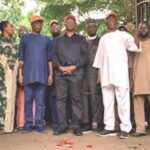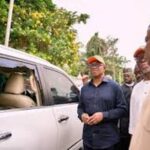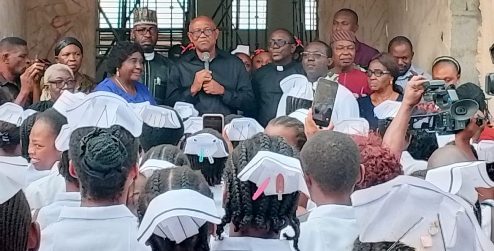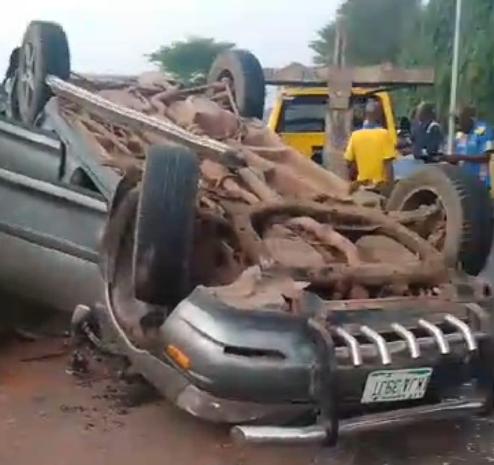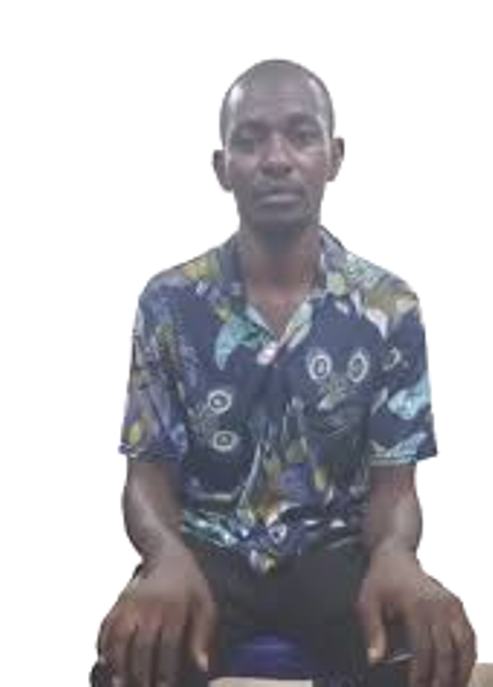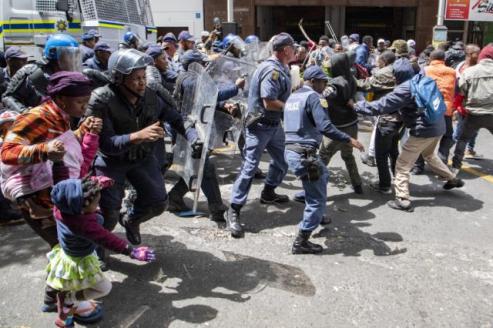
Police clash with protesters outside the U.N. refugee agency's offices in Cape Town, South Africa Wednesday, Oct. 30, 2019. Police used water cannons while dispersing and arresting scores of foreigners who have camped outside the offices for weeks seeking relocation outside South Africa after a wave of attacks on foreigners in cities earlier this year. (AP Photo)
LAGOS OCTOBER 30TH (NEWSRANGERS) — Police in the South African city of Cape Town used water cannons Wednesday while dispersing and arresting hundreds of foreigners, including children, who have camped for weeks outside the U.N. refugee agency’s office.
Some of the refugees and asylum-seekers told local media they are seeking to be relocated outside the country after a wave of deadly attacks on foreigners in South African cities earlier this year.
During Wednesday’s confrontation, there were scuffles with officers and small children clung to people being dragged away by police. Police said they had arrested about 100 people who “failed to heed the call to disperse.”
Police said earlier efforts by the U.N. refugee agency and others to resolve the situation amicably “yielded no positive result.” Police said officers were executing an Oct. 18 court order after a landlord applied to evict the 300 or so people who had been camping in the downtown arcade in a protest.
The U.N. refugee agency didn’t immediately respond to questions about the police operation. Last week, it issued a statement saying “false messages” were being circulated about resettlement and evacuation, adding that only a very small number of refugees meet the criteria for resettlement and that no planes or buses were on the way to help in evacuations. It also warned of fraudulent requests for fees for resettlement and repeated its services are free.
Earlier this year more than 12 people were killed and over 700 arrested after bands of South Africans in Johannesburg and the capital, Pretoria, launched attacks against foreign-owned shops and stalls, looting and burning them and attacking some shopkeepers.
The attacks angered many African countries and led to an extraordinary airlift of hundreds of Nigerians. Nigerian President Muhammadu Buhari condemned the violence as “unacceptable.” During a later visit to South Africa, he and South African President Cyril Ramaphosa said “early warning mechanisms” would be put in place to avoid further attacks.
Such attacks against foreigners have occurred several times over the years.
Ramaphosa’s government has faced criticism for not explicitly speaking out against xenophobia at first but instead framing the violence as crime.
Ramaphosa, who later called the xenophobia “regrettable,” has acknowledged frustrations about South Africa’s high unemployment — now 29%, the highest in more than a decade — and its sluggish economy, but he has told his countrymen not to take it out on foreigners.
AP




